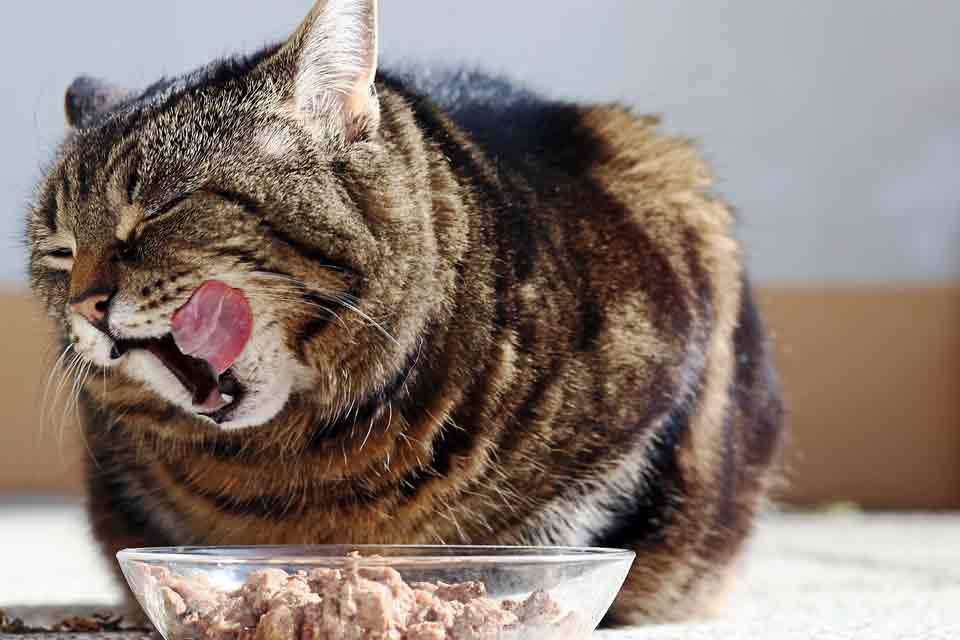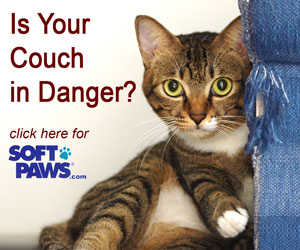How Much Should You Feed Your Cat?

Sharing a home with cats brings a lot of mystery into your life. They do things we don't understand like fling litter out of their boxes and use their paws to play in their water bowls. We even have to learn their language so we can show them love.
But few things are more mysterious than the question of how much you should feed your cat. Don't worry—we can help you unlock this mystery too.
Why Should You Worry About How Much to Feed Your Cat?
Many people simply put food out for their cat at all times, filling the bowl when it gets empty. This is called free choice feeding, and it does work for the occasional cat. However, most of the time, free choice isn't the best idea.
Cats, especially those that live indoors where it's safer, easily become overweight due to the lifestyle household kitties have in the modern age. They aren't the hunters they are in the wild. Those cats expend a ton of energy stalking, chasing, and bringing down prey. But our cats have food delivered to them and generally don't get a whole lot of exercise.
Cats that are overweight are at higher risk of developing a bunch of different health conditions, including diabetes, heart disease, joint problems, and hepatic lipidosis.
Additionally, cats that might do well on free feeding when they're young may begin to put on too much weight when they're older. Meal feeding from the beginning can help avoid the issue of having to get a cat used to the change after he's been free fed for years.
How Much Food Does a Cat Need?
The answer to this isn't cut and dry. It varies depending on your cat's sex, lifestyle, age, current weight, and body type.
The first step toward determining how much food your cat needs is to visit the veterinarian and have his current body condition score evaluated. The veterinarian will look at and feel your cat and determine this score, with 1 being underweight, 9 being overweight, and 5 being ideal.
Once you have that number, you can ask your veterinarian to calculate how many kcals per day you should give your cat to begin to maintain, lose, or gain weight as necessary. Alternatively, you can use a calculator like this one: Nutritional Calculator for Adult Cats.
Your cat might need more or less food than the average adult cat if he is a senior, has a medical condition, or is particularly active. Be sure to ask your veterinarian if you have any questions about how much or which diet to feed your cat.
From there, look at the nutritional information on your cat's food to see how many kcals it contains. You can find this information on dry food, wet food, and even treats. Then, do the math and determine how much of that food your cat would need to be fed each day to hit the daily kcals recommended.
It's crucial that an overweight cat doesn't lose too much weight too fast because hepatic lipidosis, a life-threatening liver condition, can occur in that circumstance. So, keep a close eye on your kitty as you adjust food, weighing him at least once a week, and keep in close contact with your veterinarian about his progress.
Don't expect your cat to lose more than about 1-2% of his body weight per week. That is only a matter of ounces, so don't look for big losses, and if you see them, your cat likely needs more food.
Break up the daily food amount your cat gets into two or three servings. That helps him maintain consistent energy levels and not get too hungry.
You May Also Like These Articles:
Quiz - Are You Making Cat Care Mistakes?
How You Can Care for Your Cat After You're Gone
Why Should I Take My Cat to the Vet?
How to Decide on an Indoor or Outdoor Lifestyle for Your Cat
How Do I Feed My Overweight Cat
What to Look for in an In-Home Cat Sitter
6 Ways to Help Calm a Cat That's Upset
Moving with Cats: Easing a Move for You and Your Cat
Notice: Ask-a-Vet is an affiliated service for those who wish to speak with a veterinary professional about their pet's specific condition. Initially, a bot will ask questions to determine the general nature of your concern. Then, you will be transferred to a human. There is a charge for the service if you choose to connect to a veterinarian. Ask-a-Vet is not manned by the staff or owners of CatHealth.com, and the advice given should not delay or replace a visit to your veterinarian.





